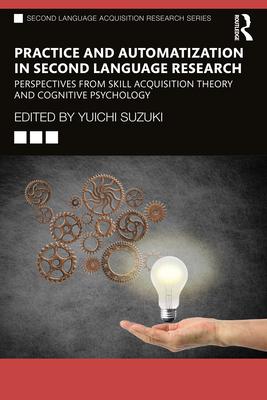Practice is a recurring and popular theme in language education. However, the concepts of practice and automatization have recently received renewed theoretical and practical interest and are increasingly being explored from the skill acquisition theory and cognitive psychology perspectives.
In this volume, leading scholars discuss the optimal types, amounts, and schedules of practice for specific language structures and skills, as well as for various types of learners and learning contexts, to facilitate second language development. They illuminate how practice is instantiated for specific groups of teachers and learners in diverse institutionalized contexts, such as foreign language curriculum development, intelligent computer-assisted language learning systems, task-based language teaching, and study abroad. Furthermore, original methodological syntheses of extant research on practice and automatization are presented, along with guides for conducting empirical research on these topics.
Practice and Automatization in Second Language Research: Perspectives from Skill Acquisition Theory and Cognitive Psychology is a valuable resource and reference for graduate students and researchers in the field of SLA and applied linguistics.
